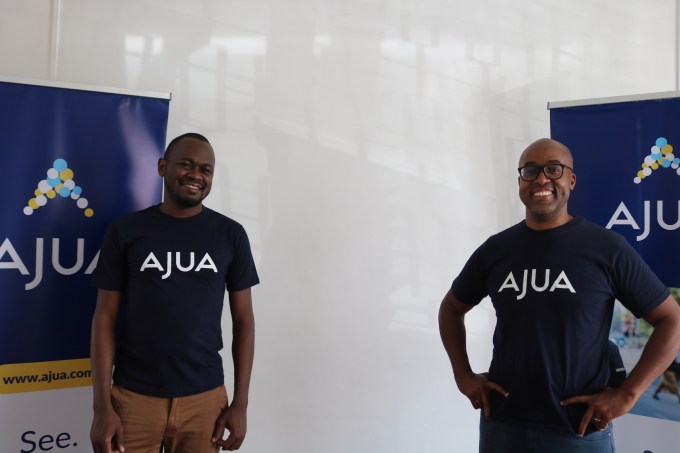Kenyan consumer experience platform for businesses in Africa, Ajua today announced that it has acquired WayaWaya, a Kenya-based AI and ML messaging and payments company.
WayaWaya’s customers and partners include the likes of I&M Bank, Interswitch and MTN. The company offers a range of services, from digital banking and payment services to financial services APIs and payment bots.
According to Ajua, the acquisition is primarily focused on WayaWaya’s payments bots system known as Janja. The platform, which has customers like Airtel, Ezee Money, Housing Finance Company of Kenya (HF Group), enables borderless banking and payments across apps and social media platforms. Teddy Ogallo, the entrepreneur who founded WayaWaya, joins Ajua as VP of Product APIs and Integrations.
Per Crunchbase, WayaWaya has just raised $75,000. Although the two companies did not disclose the financial details of the acquisition, Ajua is expected to have paid 10 times more than WayaWaya’s total raise.
Ajua, formerly mSurvey, was founded in 2012 by Kenfield Griffith. The company is solving a consumer data problem for African businesses to understand their business better and drive growth.
“There’s a lot of commerce happening on the continent and Ajua wants companies to move from transaction numbers to the customers behind such transaction,” Griffith told TechCrunch. “Imagine if we knew what drove consumer habits for businesses. I mean, that’s a huge exponential curve for African businesses.”

Teddy Ogallo (Founder, WayaWaya) & Kenfield Griffith (CEO, Ajua)
Nigeria’s SME market alone is valued at $220 billion annually. And while businesses, mostly big enterprises, can afford customer communication tools, a large segment of small businesses are being left out. Ajua’s play is to use data and analytics to connect companies with their customers in real time. “We’ve taken what makes enterprise customers successful, and we’re capturing it in a simple format so SMEs can have the same tools,” Griffith added.
Since most consumer behavior for these SMEs happens offline, Ajua gives businesses unique USSD codes to receive payments, get feedback and offer discounts to their customers. It is one of the products Ajua has launched over the years for customer feedback at the point of service to businesses that cumulatively have over 45 million customers.
The company’s partners and clients also include Coca-Cola, FBNQuest, GoodLife Pharmacy, Java House, Safaricom, Standard Chartered and Total.
As an intelligent messaging bot, Janja is used by individuals and businesses across WhatsApp, Facebook Messenger and Telegram to automate customer support and make cross-border payments. So, Janja’s integration into Ajua’s product stack will close much of the acquirer’s customer experience loop by automating responses and giving customers what they want, when they want it.
This acquisition comes a month after Ajua announced that it partnered with telecom operator MTN Nigeria to launch a customer management product for Nigerian businesses. The product called MTN EnGauge carries the same features present in Ajua but, in this case, is tailored solely for businesses using the MTN network. The roll-out is expected to generate more data for Ajua’s thousands of users. It will also be upgraded to incorporate Janja and other services.
In hindsight, it appears Ajua could have created a product like Janja in-house due to its vast experience in the consumer experience space. However, the company chose an acquisition and Griffith gave two reasons why — building a similar product would have taken a long time and Ogallo seemed to know Janja’s business and operations so well, it just made sense to get him on board.
“Teddy was going the same direction we’re going. We just thought to acquire WayaWaya instead and make a really good company out of both products attempting to solve the same problem. To me, it’s all about solving the problem together rather than going alone,” said the CEO.
On why he accepted the acquisition, Ogallo, who now has a new role, noted that Ajua’s ability to scale customer service and experience and also help businesses was one reason and earned admiration from him. “Seeing how WayaWaya’s technology can complement Ajua’s innovative products and services, and help scale and monetize businesses, is an exciting opportunity for us, and we are happy that our teams will be collaborating to build something unique for the continent,” he added.
This is a solid infrastructure play from Ajua coming from a founder who is a massive advocate of acquisition and consolidation. Griffith believes that the two are strategies for a speedier route to new markets and channels in Africa.
“I think there are lots of ways we can build the ecosystem. There are lots of young talent building stuff, and they don’t have access to capital to get to the next stage. The question is if they want to race to the finish line or take off time and get acquired. I think there’s a huge opportunity in Africa if you want to solve complex problems by acquisition.”
There has been an uptick in local acquisitions in Africa from startups within a single country and between two countries in the past three years. For the former, Nigerian recruitment platform Jobberman’s acquisition of NGCareers last year comes to mind. And there are pan-African instances like Lagos-based hub CcHub’s acquisition of iHub, its Nairobi counterpart; Ethiopian software provider Apposit sell-off to Nigerian fintech Paga; and Johannesburg-based fintech MFS Africa acquiring Uganda’s Beyonic.
The common theme among the acquisitions (and most African acquisitions) is their undisclosed sums. For Ajua, Griffith cited regulatory issues as one reason why the company is keeping the figure under wraps.
Since launching nine years ago, Ajua has raised a total of $3.5 million, according to Crunchbase. Given the nature of this acquisition and partnership with MTN, the company might set sights on another fundraise to scale aggressively into Nigeria (a market it entered in 2019) and other African countries.
Comments
Post a Comment